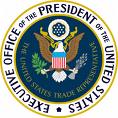 Last Friday, an interagency committee led by the U.S. Trade Representative received comments for the 2014 Special 301 Review. This annual review is a process in which it identifies countries that allegedly “deny adequate and effective protection of intellectual property rights (IPR) or deny fair and equitable market access to U.S. persons who rely on intellectual property protection.” As part of the review, comments are accepted from the general public, and they have now been posted online. The next step of the review will be a public hearing on February 24. There will be private consultations with other stakeholders and government officials, and a final report will be issued “on or about April 30.”
Last Friday, an interagency committee led by the U.S. Trade Representative received comments for the 2014 Special 301 Review. This annual review is a process in which it identifies countries that allegedly “deny adequate and effective protection of intellectual property rights (IPR) or deny fair and equitable market access to U.S. persons who rely on intellectual property protection.” As part of the review, comments are accepted from the general public, and they have now been posted online. The next step of the review will be a public hearing on February 24. There will be private consultations with other stakeholders and government officials, and a final report will be issued “on or about April 30.”
Much of the attention this year has focused on India. The Pharmaceutical Research and Manufacturers Association (comment), the National Association of Manufacturers (comment), and the Camber of Commerce (comment) have asked USTR to designate India a “Priority Foreign Country” in the Special 301 Report. Among the reasons cited are the grounds upon which India has issued compulsory licenses, and its standards for patentable subject matter found in Section 3(d) of the Patent Act – both of which the trade associations say violate India’s TRIPS obligations. Others such as Knowledge Ecology International (comment), Public Citizen (comment) and Professor Srividhya Ragavan (comment) defend India’s patent policies as appropriate public health policies.
The “Priority Foreign Country” designation in the Special 301 Report is reserved for the worst IP offenders, and it triggers a formal process under the Trade Act that can lead to trade sanctions. The bilateral nature of the Priority Foreign Country designation has raised eyebrows in the past, because all Members of the WTO are required to use the WTO’s Dispute Settlement System to adjudicate questions of TRIPS compliance. More on that in Sean Flynn’s comment.
Many of the industry comments also reflect a growing irritation with the multilateral institutions where global intellectual property norms are debated and established. In the view of these industry groups, it is improper for organizations such as the WTO or WIPO consider flexibilities in systems of intellectual property. Direct quotes follow:
National Association of Manufacturers:
The threat of IPR erosion remains a serious concern. The global framework of IPR protections, particularly for clean technology, energy, medicines and other advanced manufacturing products, is being challenged in a range of international forums. For example, strong IPR protection and enforcement is critical to achieving global energy and environment objectives. But in the UNFCCC, the WTO and elsewhere, several countries continue to call for compulsory licensing of clean technologies.
Those calls are consistent with broader efforts across the United Nations system to wrongly position IPR as a barrier to the treatment of disease and the development, dissemination and deployment of clean technologies.
The UN Global Strategy for the Prevention and Control of Noncommunicable Diseases suggests IPR could prevent countries and patients from accessing treatments, despite a complete lack of evidence to that effect. WIPO has undertaken work streams to study patent exceptions and limitations.
Chamber of Commerce’s Global IP Center:
Several multilateral institutions have chosen to focus educational papers on encouraging the maximization of intellectual property flexibilities for some technologies protected by patents, such as medicine and clean energy technology.3 These studies promulgate the notion that intellectual property is a barrier to access for innovative technologies while making little to no comment on endemic problems such as high import tariff rates and corruption rates as barriers to access. The misconception of intellectual property as a barrier has a potentially negative impact on investment in these areas, which could subsequently lead to less innovation of products to address global challenges.
Pharmaceutical Research and Manufacturers Assocation
Any effort to promote the ability of U.S. businesses to protect intellectual property in world markets must also take into account activities at international organizations such as the United Nations (UN) system, including the World Intellectual Property Organization (WIPO) and World Health Organization (WHO), as well as the WTO. Certain U.S. trading partners take active positions on IP issues within international fora that seek to diminish IP protection and widen the berth for potential infringement of innovative companies‘ rights. The United States must remain vigilant in these organizations, work with like-minded countries in countering these positions, and continue to advocate for robust IP protection and due enforcement in the face of mounting attempts to diminish these rights.




